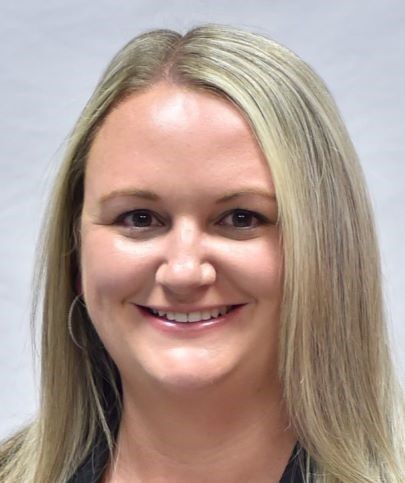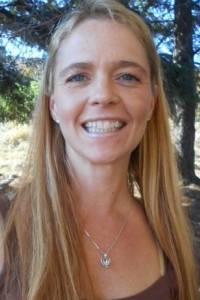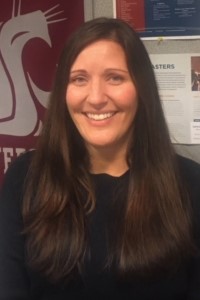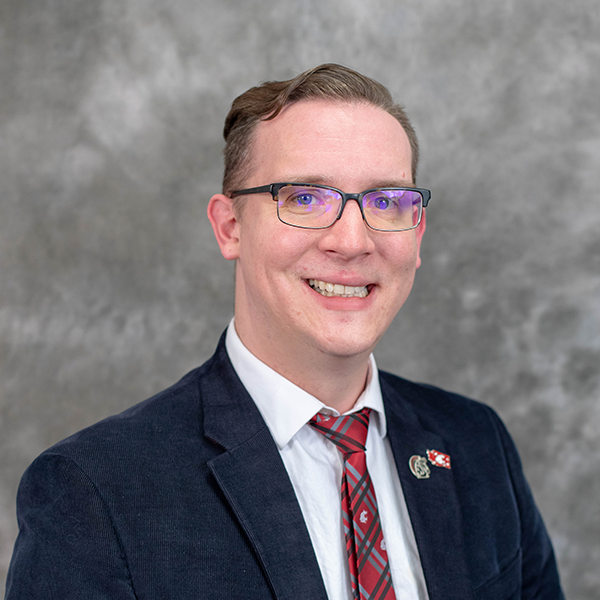Student Resources
Information Sessions
INFORMATION SESSIONS
- Information sessions are led by a Center for Community Standards staff member on a one-on-one basis. These sessions will help you understand your rights and responsibilities and what you can expect moving forward. Information sessions are meant to clarify the community standards process and answer questions you may have. Each information session should last 30 minutes.
Information sessions will not be held on or during university or class holidays.
Register for an information session directly through the Center for Community Standards Microsoft Bookings Page.
Information sessions will take place via Microsoft Teams. If you are unable to access Microsoft Teams, please contact our office to request a Zoom session.
Information session meetings may be scheduled between 8:00 a.m.–5:00 p.m. (PDT), Monday through Friday. Please contact the Center for Community Standards by email or at 509-335-4532 if you have any questions or need help scheduling.
Language Interpreter
LANGUAGE INTERPRETER
To ensure you understand your rights, responsibilities, and the community standards process, WSU will cover all costs for you to have a language interpreter. The interpreter can attend your meetings and hearings. You may request a language interpreter by contacting us.
Legal Representation
LEGAL REPRESENTATION
A licensed attorney or a legally licensed intern may act and speak on your behalf during Formal Hearings. During all other hearings, they can only serve as an advisor. WAC 504-26-020
If you choose to have legal representation, it is at your own expense. You can find options for representation through the Washington State Bar Association and the Whitman County Bar Association.
Campus Resources and Support
CAMPUS RESOURCES AND SUPPORT
Please select your campus to find available resources.
Pullman
Emotional Health & Addiction Services
- Cougar Health Services, Counseling and Psychological Services
- WSU Dean of Students
- Alternatives to Violence of the Palouse & Crime Victims Service Center
- Palouse River Counseling
- Washington State Department of Social and Health Services (DSHS)
- Not a Moment Wasted
- Whitman County Recovery Navigator Program
Health Care Services
Financial Assistance & Housing
- WSU Student Financial Services
- WSU Student Accounts
- WSU TRIO Student Support Services
- WSU Dean of Students
- WSU Housing and Residence Life
- Whitman County Community Action Center
- Washington State Department of Social and Health Services (DSHS)
- Alternatives to Violence of the Palouse & Crime Victims Service Center
- Sojourners Alliance
Legal Resources
Academic Services
Accommodations and Services for Individualized needs
Spokane
Campus resources
- Counseling Services Spokane 509-358-7740, Yakima 509-494-7925
- Employee Assistance Program 877-313-4455
- Office for Equal Opportunity 509-335-8288
- Spokane Community Standards & Concerns 509-358-7537
- Office of the University Ombudsman 509-335-1195
- Office of Veterans Affairs and Student Veterans Center 509-335-1234
- Spokane Veterans Liaison 509-358-7530
Community resources
- National Suicide Prevention Lifeline 800-273-TALK (8255)
- Northwest Justice Project Free Legal Hotline 888-201-1012
- Sexual Assault and Family Trauma (SAFeT) Response Center 509-624-7273
- Spokane Community Crisis Line 877-678-4428
- Spokane Crime and Victim Service Center 866-751-7119
- Spokane Police Department Law Enforcement Help Line 509-411-5980
- YWCA Alternatives to Domestic Violence Program 509-326-2255
- Not a Moment Wasted
- Seek then Speak
Tri-Cities
Campus resources
- Access Services 509-372-7352
- Employee Assistance Program 877-313-4455
- Student Counseling Services 509-372-7153
- Office of Equal Opportunity 509-335-8288; Tri-Cities Liaison 509-372-7104
- Student Financial and Support Services 509-372-7433
- Center for Community Standards 509-372-7433
- Office of the University Ombudsman 509-335-1195
Community resources
- Benton County Crisis Line 800-783-0544
- Benton County Sheriff’s Department 509-786-5615
- Crime Victim Service Center (CVSC) 509-374-0130: Crime Victim Service Center Hotline 888-9-VICTIM
- Domestic Violence Services of Benton & Franklin Counties 509-582-9841
Provides support services for victims of domestic violence. - Domestic Violence Services Hotline 800-648-1277
- National Suicide Prevention Hotline 800-273-TALK (8255)
- Richland Police Department 509-942-7340
- Sexual Assault and Family Trauma (SAFET) Response Center 509-624-7273
- Support, Advocacy & Resource Center 509-374-5931
- Tri-Cities Community Health 509-547-2204
- Not a Moment Wasted
- Seek then Speak
Vancouver
Campus resources
- Access Center 360-546-9238
- Counseling Services 360-546-9238
- Employee Assistance Program 877-313-4455
- Health Services 360-546-9238
- Title IX Liaison 360-546-9571
- Office of Student Conduct 360-546-9573
- WSU Vancouver Public Safety 360-546-9001
- Office for Equal Opportunity 509-335-8288
- Office of the University Ombudsman 509-335-1195
Community resources
- Clark County YWCA 360-696-9560
- City of Vancouver Police Department 360-487-7400
- Clark County Crisis Line 360-696-9560
- Clark County Crime Victim Services 888-425-1176
- Community Health Services
- National Suicide Prevention Lifeline 800-273-TALK (8255)
- Northwest Justice Project Free Legal Hotline 888-201-1012
- Not a Moment Wasted
- Seek then Speak
Everett
Campus resources
- Student Accommodations and Disability Resources
- Counseling and Psychological Services
- Employee Assistance Program 1-877-313-4455
- Safety and Security 425-388-9990
- Student Care Committee 425-405-1725
- Title IX Liaison 425-405-1725
- Office for Equal Opportunity 509-335-8288
- Office of Student Services 425-405-1725
- Office of the University Ombudsman 509-335-1195
Community resources
- Better Help
- Domestic Violence Services of Snohomish County 425-252-2873
- Everett Crime Victim Services 1-800-346-7555
- Everett Police Department 425-257-8700
- National Suicide Prevention Lifeline 1-800-273-TALK (8255)
- Northwest Justice Project Free Legal Hotline 1-888-201-1012
- Providence Everett Medical Center 425-316-5000
- Snohomish County Legal Services 1-888-201-1014
- Snohomish Crisis Line 1-800-584-3578
- YWCA Pathways for Women 425-774-9843
- Not a Moment Wasted
- Seek then Speak
Global Campus
Career Advising
WSU Global Campus offers free career advising to all students, including those who have yet to apply to WSU. Whether you are interested in exploring career paths, or already have a career in mind and just want to learn how to get there, our dedicated career advisor is there to help.
Academic Advisors
WSU Global Campus undergraduate students are given a personal academic advisor to help them along on their higher education journey. Our team of caring, experienced advisors have the in-depth knowledge and expertise to help you make decisions about your college career and get across the finish line.
Tech Resources and Support
Our TechReady site is your one-stop-shop for ensuring you’re ready to learn online. From here, you can explore hardware and software requirements, what skills you’ll need to succeed as an online learner, and tips and tools to help you along the way. Helpful tech resources and tutorials are also available on the site. And if you ever need assistance with a technical issue, our Tech Support Team is available 24/7 to give you the help you need.
eTutoring
WSU Global Campus students have access to free tutoring services, 100% online.
Mental Health and Wellbeing
At WSU Global Campus, we know that students can face a wide variety of stressors and mental health challenges. To address these complex issues, we provide mental health and wellbeing resources, including multiple free mobile mental health programs, Wellness Online, a financial reimbursement for mental health and wellness, and more.
Military and Veterans Support
WSU Global Campus welcomes all active duty military, reservists, veterans and their families! We’re here to help you use your military experience as transfer credit, take advantage of financial benefits, and more. You can learn more on our Global Campus Military and Veterans page and WSU’s Office of Veterans Affairs website.
Library Services
As a Global Campus student, you will have access to a full range of library services which provide access to over 3.5 million books, journals, documents, newspapers and more. This includes FREE delivery of physical WSU library books as well as access to online databases and assistance from the distance learning librarian, Jen Saulnier.
Student Accommodations
It’s our goal to make online learning as accessible as possible. Global Campus and the WSU Student Accommodations and Disability Resources work together to provide accommodations for students with disabilities.
Reimbursement Program
ASWSU Global, Global Campus’ student government, offers financial reimbursements to qualifying Global Campus students for travel, technology needs, child care and more.
LGBTQ+ Student Center
WSU’s LGBTQ+ Student Center serves and supports gay, lesbian, bisexual, transgender, questioning, and ally (LGBTQ+) students throughout the Washington State University system by providing resources, fostering community building, and promoting relevant initiatives. Additionally, the center promotes academic and personal growth, learning, and development for LGBTQ+ students.
Video Vault
The Global Connections Video Vault is an archive of past webinars and live-streamed events featuring expert presenters discussing a wide variety of fascinating topics. The archive allows Global Campus students to explore this free and engaging media at their convenience.
Cougar Card
You can become a card-carrying Coug! As a Global Campus student, you can order a Cougar Card, WSU’s student ID. Your Cougar Card identifies you as a WSU student and gives you access to great perks like student discounts.
Confidentiality
Not all resources listed are confidential. A confidential resource is one that can discuss your concerns with you privately and is not obligated to report to authorities. Legally, there are a few exceptions to confidentiality; those exceptions are the abuse of a child or vulnerable adult and imminent harm to self or others. Most of the non-confidential resources do have policies in place to keep your information as private as possible. If you are concerned about confidentiality, please make sure to ask about policies before disclosing any information you do not want to be shared.
Student Handbook
STUDENT HANDBOOK FOR COMMUNITY STANDARDS
Maintaining a safe, healthy, and inclusive campus is the entire WSU community's responsibility. We contribute to a community which encourages and educates everyone to make positive choices and share messages of our values.
Occasionally students make choices that put those values at risk. The community standards process is designed to support those students, uphold their rights and responsibilities, and hold them accountable for behaviors that conflict with our community standards.
An overview of the community standards process
The following outline applies to the majority of reported incidents. The Center for Community Standards will help you to understand your unique situation.
An incident was reported and the community standards process begins.
Information will be gathered and you will be contacted (through your WSU email) about the next steps, including your information session. Until a decision is made, you are assumed not responsible for the reported incident. Review a step-by-step outline of the community standards process.
If the incident is related to Academic Integrity (cheating, plagiarism, etc.) the process is a little different. See an outline of the academic integrity process here.
Reviewing your rights and responsibilities.
You will benefit by actively participating in the process and being informed of your rights and responsibilities. Learn how to share your experience and information related to the reported incident.
Use your resources and seek support.
You don't have to do this alone and we have resources available to help. Information sessions, trained advisors, campus resources, accommodations, and language interpreters are available.
Attend your hearing.
Your hearing is an opportunity to review the reported information and share your experience before a decision is made by your Conduct Officer or the Conduct Board.
Possible outcomes.
After your hearing, you will be notified of the outcome by email. If sanctions are assigned, they are meant to be educational and not to impede upon your ability to graduate or continue your education. The range of potential sanctions is dependent on the incident.
Option to appeal.
If you do not agree with the decision of a conduct officer, conduct board, or instructor, you may file an appeal.
We're here to help
We understand this can be a challenging time. Your success and education is our priority and we are available to support you or connect you with additional campus resources. If you have any questions or concerns, please contact us.
Advisors
ADVISORS
Going through the community standards process can be overwhelming and at times, confusing. An advisor can help make the process easier, serving as a mentor or sounding board. Your community standards advisor is different from your academic or career advisor. You may choose to have an advisor with you during any stage of the process. WAC 504-26-020
Your advisor can contact us to get information about meeting dates, your status in the process, and any assigned sanctions. They can also attend meetings and your hearing with you in a supportive role. It’s important you know that your advisor cannot represent you or speak on your behalf, and they do not serve as an attorney or legal counsel.
There are two advisor options you can choose from:
1. An advisor of your choice who is not involved in the reported incident. For example, an advisor could be a WSU faculty or staff member, or a community member, as long as they are not a witness to the reported incident.
2. A WSU faculty or staff member who has volunteered to serve as an advisor in an unbiased role. You can find a list of these advisors, along with their profiles and contact information below. You may reach out to them directly and at any time.
These volunteer advisors are selected and trained to serve students within the community standards process. They are not employed by the Center for Community Standards or the Office of the Dean of Students.
You will need to submit an advisor registration form so we know they will be working with you.

Amber Brown
amber.n.brown@wsu.edu
Candida Carv
candida.carv@wsu.edu

Dawn Freeman
Vancouver Campus Science Building (VSCI) Room 110 360-546-9628 dmfreeman@wsu.edu Meet Dawn





